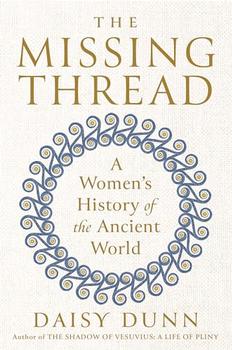Book Club Discussion Questions
In a book club? Subscribe to our Book Club Newsletter!
Please be aware that this discussion guide will contain spoilers!
- The novel begins with Willie’s question to his father about why he was
named after the English novelist W. Somerset Maugham. If a name is a crucial
piece of a person’s identity, how useful is the information Willie receives? How
does Maugham come across in his responses to Willie’s and his father’s letters?
- How does Willie’s father become a holy man? What is comical, and what is
reprehensible, in the choices he makes? Is he a person trapped in circumstances
beyond his control, or might he have done things differently? What is the source
of his narcissism? Considering that in Maugham’s The Razor’s Edge,
the holy man is believed by his Western admirers to be a person of true
integrity, why does Naipaul portray this character as a fraud?
- Naipaul has written about India’s caste system in several of his
nonfiction books. How does he recreate the social world of a caste-based culture
in this novel? Why does he choose to root the circumstances of a novel about
identity–or the lack of it–in a character’s half-hearted effort to rebel against
the caste system? Given the feelings he expresses for his wife and child on
pages 32 and 33, is Willie’s father a racist at heart, despite his admiration
for Gandhi?
- Willie has a painful love for his mother and despises his father. Why do
his mother and sister seem immune to the sense of shame that Willie’s father has
passed along to his son? What are the effects, in Willie’s later life, of this
internalized shame?
- What do the stories that Willie writes while in school [pp. 38—45]
communicate to the reader? Which of them is the most powerful? Does Willie’s
creativity spring solely from his hatred for his father? In his “Prologue to an
Autobiography,” Naipaul wrote, “To become a writer, that noble thing, I had
thought it necessary to leave [home]. Actually to write, it was necessary to go
back. It was the beginning of self-knowledge.” How does this statement relate to
Willie’s brief writing career?
- What is the reason for Willie’s lack of knowledge about the world? How
does he adapt to life in London? What point is Naipaul making about the insular
world from which Willie comes?
- How does it change his outlook when Willie realizes that a culture’s rules
are largely “make-believe,” and that “he was free to present himself as he
wished. He could, as it were, write his own revolution” [p. 57]? What difference
does this new sense of freedom make for his life in the immigrant community in
London? How does he attempt to remake himself? How successful is he in shedding
his past?
- Is it significant that Willie’s first book is, “in substance . . . like
the story Willie had heard over many years from his father” [p. 96]? How is
Willie like his father, and in what ways does his life, as it develops
throughout the novel, mirror his father’s life?
- What is the effect on Willie of his father’s letter telling him of
Sarojini’s “international marriage” [pp. 105—06]? What do Sarojini’s letters,
and the way she conducts her own life, say about her? Why is she so different
from her brother?
- In the aftermath of his book’s publication, Willie believes, “All that he
had now was an idea—and it was like a belief in magic—that one day something
would happen, an illumination would come to him, and he would be taken by a
series of events to the place he should go. What he had to do was to hold
himself in readiness, to recognise the moment” [p. 114]. What sort of revelation
is this? Is Willie’s passivity simply the deepest expression of his character,
or can it be attributed to his status as an exile who has willingly cut himself
off from his past?
- Is Ana’s letter the sign Willie has been waiting for? Is Ana’s plantation
“the place he should go” [p. 114]? Why does Ana choose Willie? Why does he
attempt to keep the truth of his background from her? Why, in the end, does he
decide to leave her? Is he unable to face the political changes, as well as the
violence, that may come to Ana’s part of the world?
- In Half a Life, Willie moves from India to an unnamed
country in East Africa; both are areas about which Naipaul has written at
length. If you have read Naipaul’s nonfiction travel writing, or any his novels
set in Africa, what is familiar or unfamiliar about his treatment of India and
Africa in this novel? How does Willie’s life in Africa differ from his family’s
life in India? Why is race such a preoccupation in the plantation society in
which Willie moves?
- Willie’s friend Percy Cato comes from a similar colonial background and
is also of mixed blood, as is the tile worker Willie observes at work in the
Portuguese seafood restaurant. How does Willie compare with Percy? Why is Willie
so moved at the sight of the persecuted tile worker that he thinks to himself,
“Who will rescue that man? Who will avenge him?” [p. 155]
- What is notable about Naipaul’s writing style in Half a Life?
How does the novel’s structure reflect Naipaul’s themes of time, memory, and the
retelling of experience? Why does the novel end where it does?
Unless otherwise stated, this discussion guide is reprinted with the permission of Vintage.
Any page references refer to a USA edition of the book, usually the trade paperback version, and may vary in other editions.




